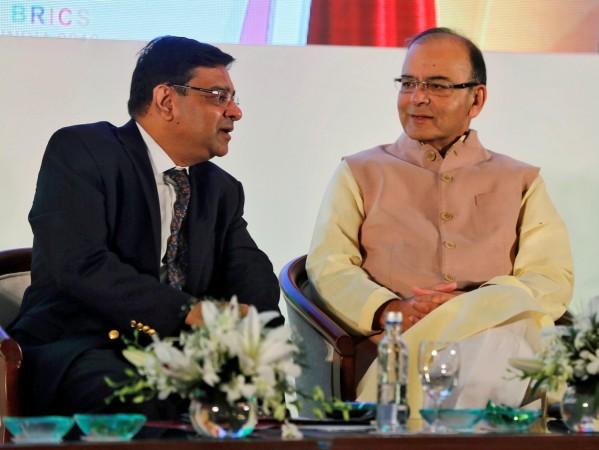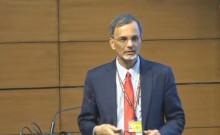
Prime Minister Narendra Modi has reportedly stepped in to quell a damaging clash between the Reserve Bank of India and the North Block.
The development has weakened speculation that Urjit Patel may resign as the RBI governor at a November 19 meeting of the board of directors.
Patel was in the Prime Minister's Office (PMO) on November 9 and sought to resolve the contentious issues, some media reports say. Sources confirmed that Patel met senior PMO officials and unconfirmed reports said that he might even have met PM Modi.
The meetings are significant in the backdrop of the difference of opinion between the central bank and the finance ministry on key issues. They include the appropriate size of RBI reserves and making it easier for financial institutions to lend to micro, small and medium enterprises (MSME), which the federal government has identified as a thrust area ahead of the 2019 election year.
Liquidity situation
Some reports suggest the RBI might float a special dispensation for lending to the MSME sector, but it was not clear if steps to ease the liquidity situation for non-banking finance companies (NBFCs) were finalised.
There was also no confirmation on reports that the government was eyeing a substantial portion of the central bank's reserves estimated at Rs9.6 lakh crore. Relations between the RBI and the finance ministry had turned frosty allegedly over the latter's desire to dip into this reserve to ease the liquidity crisis the nation faces two years after demonetisation of Rs 1,000 and Rs 500 currency notes.
The media had even read an allusion to the emergency provisions under section 7 of the RBI Act into speculation about these reserves.
MSME sector
On November 10, PM Modi had unveiled sweeping measures to revitalise the MSME sector which was among those hard hit by the demonetization ringed in two years back. Demonetisation cut of vital revenue streams to MSME sector that thrived mostly on cash transactions. Liquidity dried up for them while increasing global competition made them unviable.
Announcing the 12-point action plan ahead of the 2019 election year, PM Modi said: "In this age of globalisation, the 12-point action plan will strengthen MSMEs and help write a new chapter for them." He called them Diwali gifts, headlined by a promise to sanction loans up to Rs 1 crore in 59 minutes.
The government has promised 2 per cent interest subsidy on new loans of up to Rs 1 crore, increase in interest subsidy for small exporters to 5 per cent from the current 3 per cent, and raising of public sector undertakings' sourcing from MSMEs to 25 per cent from 20 per cent. It will also ease labour and environmental norms for the sector to clear their path to profitability.
Patel had met Finance Minister Arun Jaitley on October 30, but that meeting had not helped a thaw as subsequent statements from the two camps indicated.
















